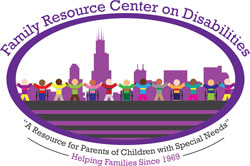Who pays for the services?
Whether or not you, as parents, will have to pay for any services for your child depends on the policies of your state. Check with your service coordinator. Your state’s system of payments must be available in writing and given to you, so there are no surprises or unexpected bills later.
What’s free to families
Under Part C of IDEA, the following services must be provided at no cost to families:
- Child Find services;
- evaluations and assessments;
- the development and review of the IFSP; and
- service coordination.
When services are not free
Depending on your state’s policies, you may have to pay for certain other services. You may be charged a “sliding-scale” fee, meaning the fees are based on what you earn. Some services may be covered by your health insurance, by Medicaid, or by Indian Health Services. The Part C system may ask for your permission to access your public or private insurance in order to pay for the early intervention services your child receives. In most cases, the early intervention system may not use your health care insurance (private or public) without your express, written consent. If you do not give such consent, the system may not limit or deny you or your child services.
Every effort is made to provide services to all infants and toddlers who need help, regardless of family income. Services cannot be denied to a child just because his or her family is not able to pay for them.
Would you like to visit another page in the Early Intervention Suite of pages?
- Overview of Early Intervention (you’re already here)
- Services in Your State for Infants and Toddlers
- Parent Participation
- Parent Notification and Consent
- Writing the IFSP for Your Child
- Providing Services in Natural Environments
- Transition to Preschool
- Public Awareness & the Referral System
- Early Intervention, Then and Now
- Who’s Who in Early Intervention
- Effective Practices in Early Intervention
- Key Terms to Know in Early Intervention
